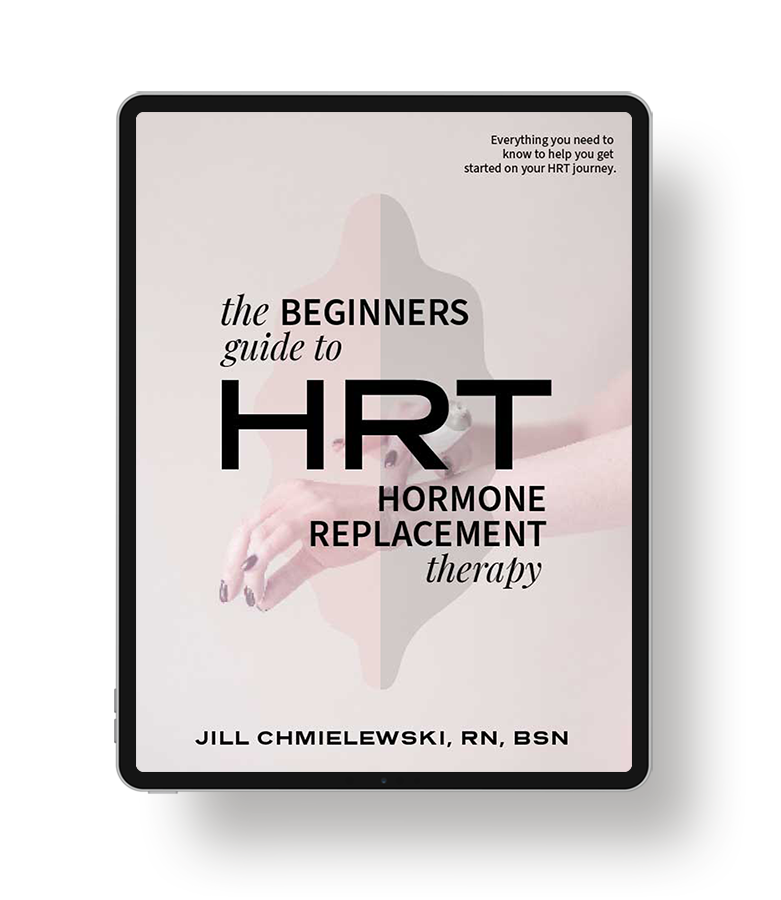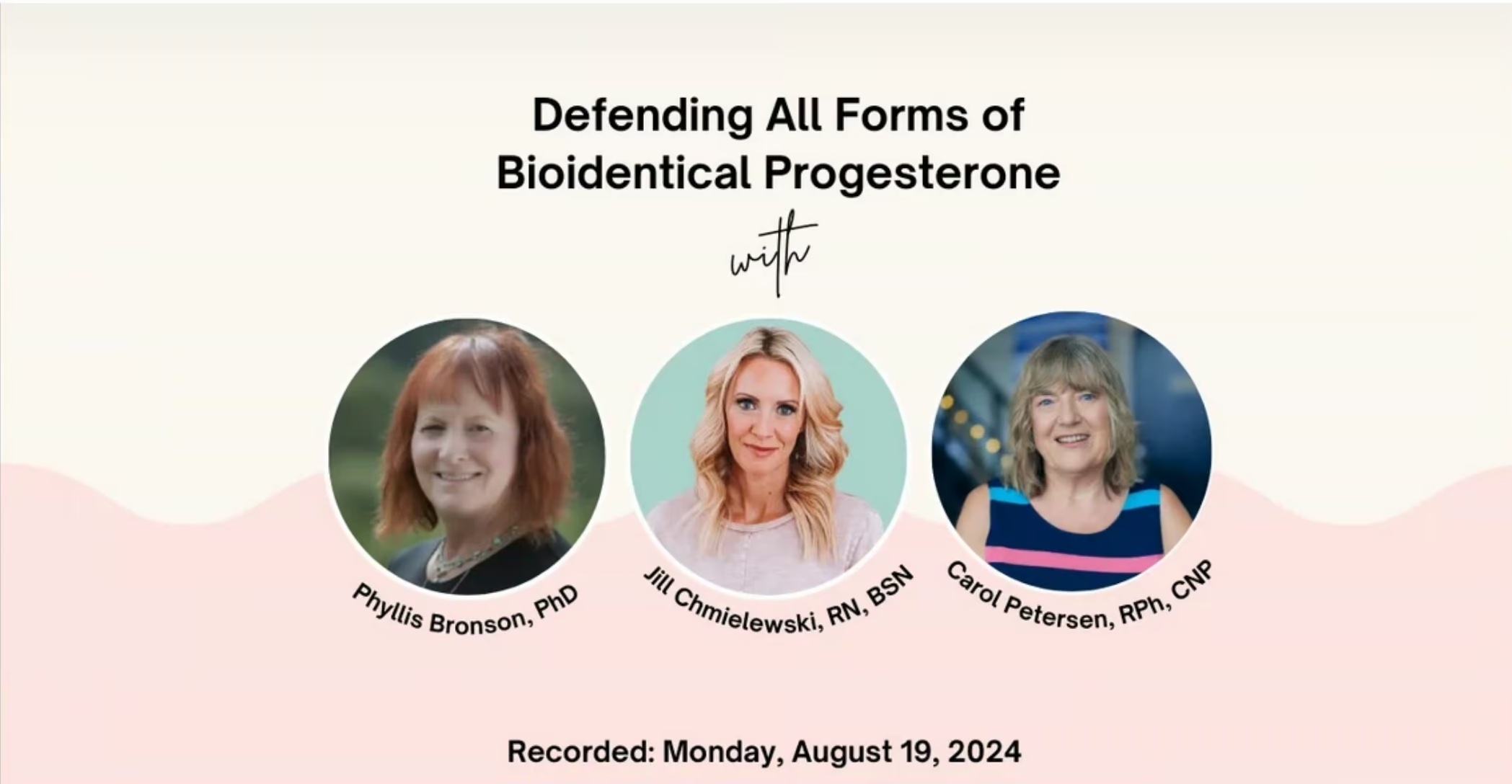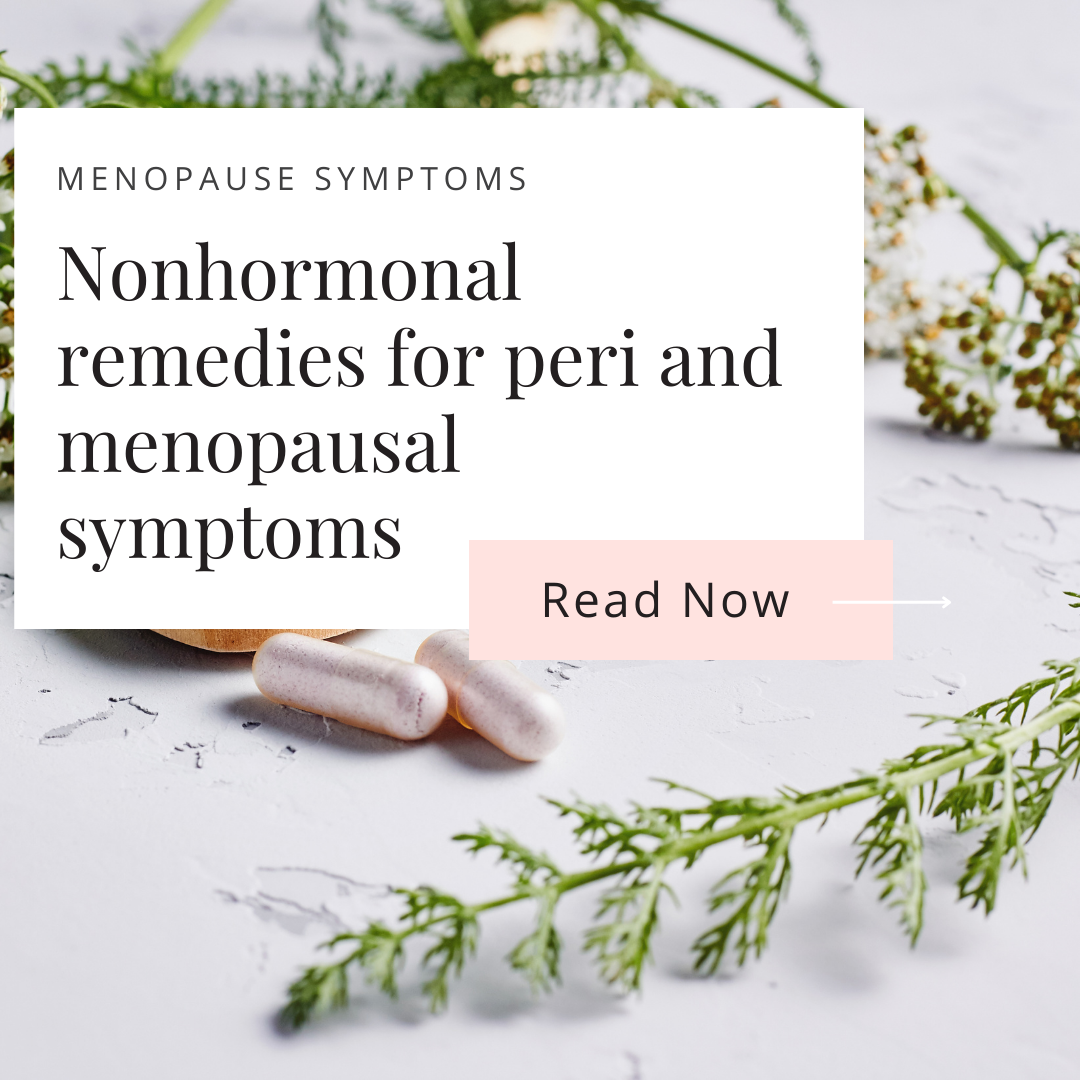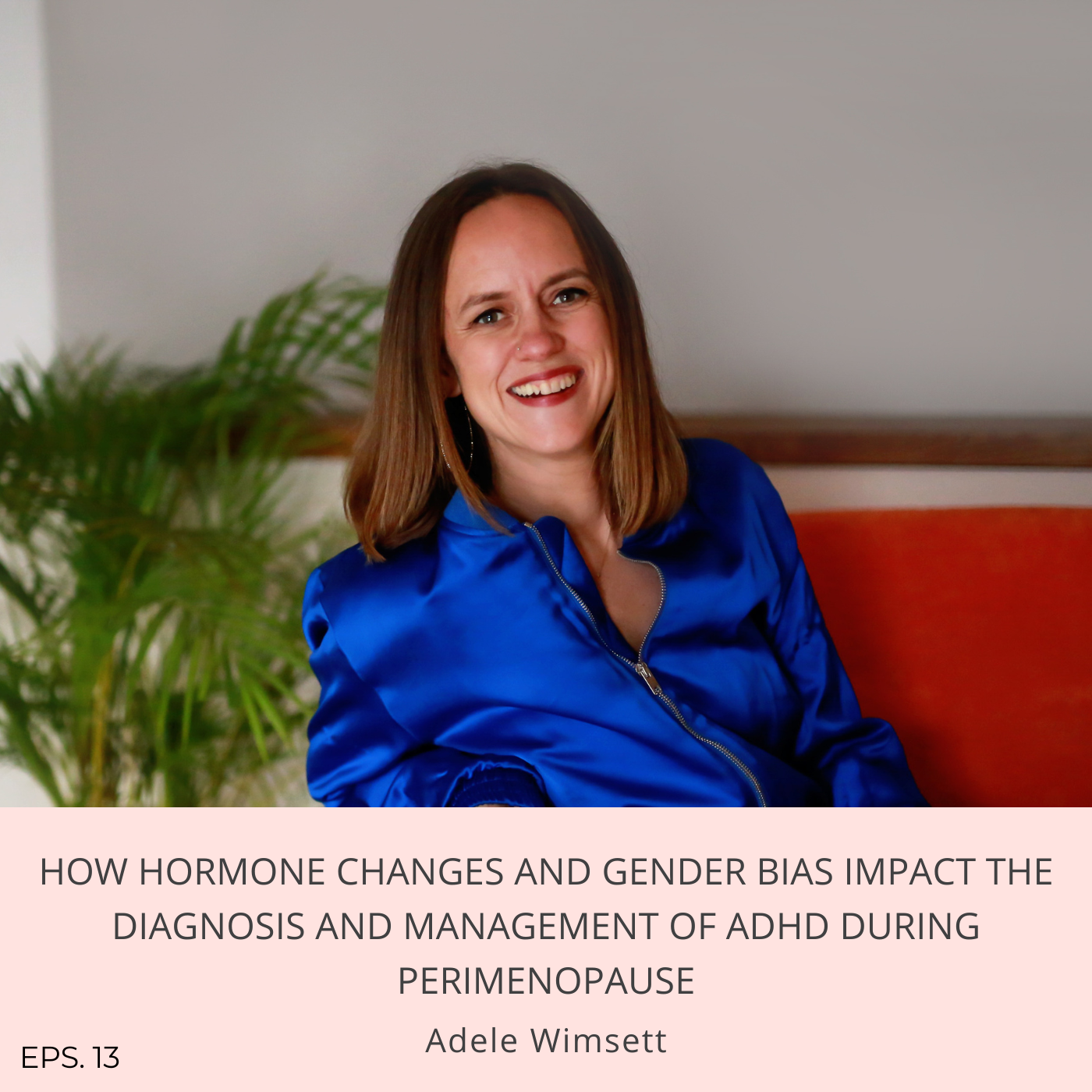If you’ve managed to make it through most of your adult years with regular, “normal” periods but now suddenly find yourself with heavy or irregular bleeding, it can be rather alarming.
Many women who experience wonky periods in their 30s and 40s assume that something must be wrong. In truth, heavy or wonky periods are often par for the course and expected to some extent during the perimenopausal years.
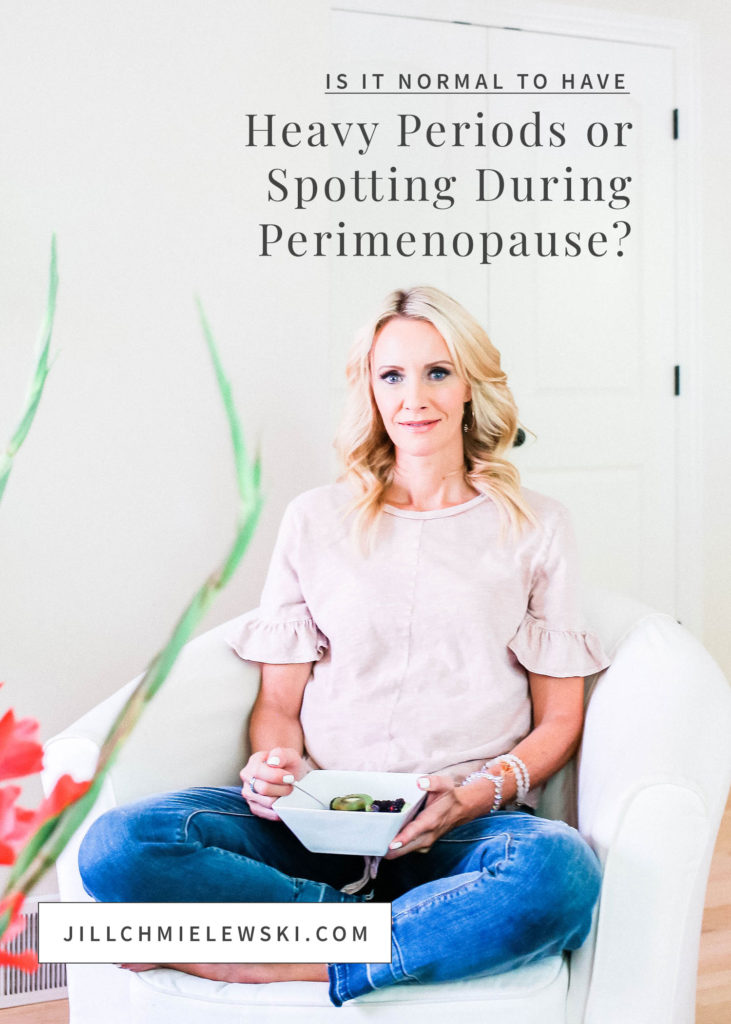
Before perimenopause, your brain-ovary hormonal communication system was in good working order, producing optimal levels of hormones in a well-orchestrated monthly rhythm.
Estrogen was rising as it should be during the first half of your menstrual cycle. You were ovulating regularly, so progesterone levels were optimal too. Estrogen and progesterone were in balance, and in general, periods were predictable and relatively uneventful.
In perimenopause, the brain-ovary hormonal communication system starts to act a little wonky. The brain tries to signal the ovary to mature an egg in preparation for ovulation. It does this by sending a hormonal signal called FSH or follicle-stimulating hormone.
Sometimes the ovary doesn’t get the signal (kind of like a spotty wifi signal), and sometimes the ovary just won’t respond to the signal. (Kind of like asking your kids to take out the garbage, and nobody responds).
Over time, it gets harder to ovulate each month. So your brain tries even harder to get your ovary to mature eggs by sending more and more FSH signals in the hopes that your ovary will kick into gear and mature an egg in preparation for ovulation.
The resulting high levels of FSH can sometimes recruit eggs earlier in your cycle than they should, which causes you to ovulate prematurely, or you may not ovulate at all. As a result, estrogen gets stacked from one cycle to the next, and you wind up with elevated estrogen levels and virtually no progesterone to balance out the effects of estrogen. (Women with this dynamic are often labeled as being “estrogen dominant.”)
Since one of progesterone’s many roles in the body is to control the growth of the uterine lining and maintain the uterine lining, women with elevated estrogen and low or no progesterone can experience heavy periods or a uterine lining that sloughs off earlier than expected.
In my experience, most conventionally trained doctors will recommend the birth control pill as a solution to “regulate” a woman’s period and control her bleeding. But that’s just band-aiding the issue and not treating the root cause of the issue, which is low progesterone.
The birth control pill suppresses your production of hormones and replaces them with synthetic hormones made from chemicals, so you wind up robbing your body of the incredible benefits that hormones confer. Trust me when I say that you want to hold on to your hormones for as long as you can.
Clinicians specializing in menopause medicine and hormone replacement therapy understand the importance of offering solutions that work with a woman’s body rather than shutting down her hormonal system with chemicals. Often, supplementing a woman with bioidentical progesterone (not progestin, which is what’s in ProveraⓇ and the birth control pill) to help balance out her estrogen is all it takes to help reduce heavy periods and breakthrough bleeding.
The bottom line is that you don’t have to suffer from heavy periods or spotting between periods. I mean, who wants to worry about soaking through their menstrual pads or bleeding three weeks out of the month at this age?
There are solutions to help you transition more smoothly through the “pausal” years. I cannot stress enough how important it is to get educated about the changes coming your way so that you can advocate for yourself and make informed decisions about your health. Grab your copy of the Peri to Menopause Roadmap today.

